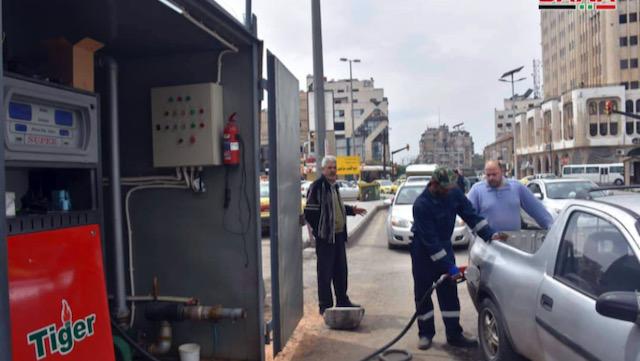The news coming out of the city of Suweida is reminiscent of the early days of the uprising in Syria.
Protesters stormed the governor’s office building and set it on fire. They climbed up the outside of the building and ripped down the large poster of President Bashar al-Assad. They stomped their feet on his pictures.
Rami Abdel Rahman, the head of the Syrian Observatory for Human Rights, told the AFP news agency that one protester and a policeman were killed.
This level of public outrage aimed at the Assad government is unprecedented in Suweida, experts say. The city is home to a religious minority called the Druze, and they have mostly stayed out of this decadelong civil war.
“I think for the first time now, we see demonstrators attacking government buildings, burning pictures of Assad himself,” said Qutaiba Idlibi, who heads the Syria program at the Atlantic Council.
He listed several reasons why people are protesting in Suweida.
“We’ve seen inflation rates that reach 250% in some areas around Syria, especially outside metropolitan centers,” Idlibi explained. “[And] we’ve seen a rise of tensions over military conscription of youth in Suweida, but also the latest episode was the government’s corrupt network that was helping distribute and transfer drugs, specifically Captagon, in Suweida province, and through Suweida province to Jordan.”
Syria’s whole economy has faced serious problems in recent years. The war has been devastating. But then came the pandemic. And the country is still under heavy economic sanctions.
All this helps begin to explain, experts say, why the anger is reaching a boiling point.
Joel Rayburn, former US Special Envoy for Syria, said the economic divide is a major driver for the protests.
“The normal people on the street or in the business community can look around, and they can see the Shabiha, the militia, and the businesses that are associated with the Assad family driving around in fancy, luxury cars. No fuel shortage there, living a high life, going to fancy restaurants at the same time that everyone else is struggling to make ends meet,” Rayburn said.
An editor for Suwayda 24, a local news outlet — whose name isn’t being used for security reasons —told The World in a text message that the city is quiet this week. He added that given the violent response by the security forces, protesters are planning to hold off on any future protests for the time being.
Another Suweida resident, 30-year-old Rawya, who also asked for her full name not to be used, told The World over a WhatsApp call that people went out to the streets because the economic situation in Suweida is dire.
“People here used to survive on money sent from abroad and farming, and now, these two sources have mostly dried up,” she said, adding that it’s because of the pandemic and the rise in insecurity in the area.
Rawya used to be active in a campaign called, “We Want to Live,” which calls for better living conditions for Syrians. But she said she started to get threats and stopped her activism.
Rawya explained that people in Suweida know all too well the type of brutality the Assad regime can unleash on the population, and she worries about the situation becoming even more violent.
The government might try to punish people in Suweida, she said, by cutting them off from daily necessities, like food and fuel. That’s a tactic the government has used in the recent past. She added that it could also ban protesters from getting an education or fire them from their jobs.
But she doesn’t see these protests going away.
“They might calm down for a while, but unless there is meaningful change, things will explode later on,” she said.
